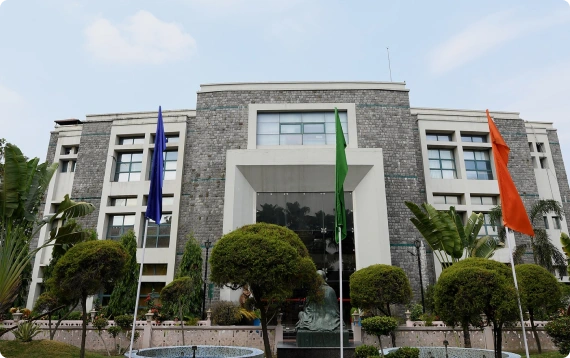Our life has become more comfortable with the usage of various digital devices and the internet. The Internet has come to us with a boon for this fast pacing world. However, there is also a flip side to this.
Even though the internet is responsible for bringing positive changes in our lives, it also comes with the huge challenge of information security. Hence, cyber-attacks become more frequent. Therefore, it becomes important to understand the nature of those cyber attacks.

In this article, let's learn about the nature and types of cyber attacks that might threaten our data and how these attacks can be prevented. You can also learn about a career in cybersecurity by learning the basis of cyber attacks.
What is a cyber attack?
To put it in simple words, cyber-attacks are unauthorised network access that harms information security. When an outsider tries to enter your private data, it is called a cyber attack. The person who attacks is called an attacker or a hacker.
Cyber attacks cause data tampering that result in data manipulation and data loss. On a commercial level, organisations incur several financial losses with customer trust being hampered alongside immense reputational damage.
This is when the need for implementing cybersecurity comes in. Cyber security helps in safeguarding these networks in the computers and other different components from any unauthorised access.
Cyber attacks: Why and how do they take place
Cyber attacks are generally criminally and politically motivated to leak information security. Cyber attacks sometimes are also targeted to bring a feeling of achievement or thrill among the hackers.
When politically motivated, cyber attacks happen to harm the image of a particular state of government in front of the public. Other pretentious intentions are why cyber attacks take place. Here are some of the reasons why:
Financial Gain: Cybercriminals launch a maximum of cyber attacks on commercial entities for financial gains. They steal sensitive data like employee personal information and credit card numbers to blackmail the companies and gain money in return.
Disruption and Revenge: This occurs specifically to show chaos, confusion and mistrust among individuals or commercial entities. Cybercriminals take such actions as an act of revenge against them. They want to publicly embarrass these entities and damage the reputation of the organisation.
Cyber Warfare: This occurs as a basis of international threats by different government entities around the world. Cyber Warfare is a tactic that executes attacks against other countries based on ongoing political, economical and social scenarios.
Types of cyber attacks
With the evolving technology, cyber-attacks are now not that simple. There are now different types of cyber-attacks that have evolved through time that can threaten your data. Let's read those.
Malware attacks: These are one of the most common types of cyberattacks. Malware is conferred to malicious viruses like ransomware, trojans, worms and spyware. Malware disguises itself as legitimate software and breaches the network by breaking its weak firewall.
Phishing attacks: This is one of the most popular types of cyber attacks in this decade. This is a special attack done by social engineers where hacker impersonates themselves as a trusted contract and sends fake emails. Through these attacks, the attackers access some or all confidential data and other account details and even install malware.
Password attack: In this type of attack, the hacker tends to crack the victim's password by incorporating various tools like Hashcat, John the Ripper and Cain. Password attacks are mainly characterised by brute force attacks, dictionary attacks and keylogger attacks.
Man-in-the-middle attack: A man-in-the-middle attack or MITM is an eavesdropping attack. The attack takes place when the attacker attacks among two-party communications where the attacker hijacks the session between the host and the client.
SQL injection attack: An SQL attack or a Structured Query Language injection cyber attack occurs on a website specifically a data-driven website when the attacker modulates a query of the SQL. Malicious code is injected through a vulnerable website search box, enclosing private and crucial information on the server.
Denial of service attack: This is a significant threat to commercial entities. In this scenario, the attackers target different systems and servers and often flood them with traffic. It tends to exhaust the resource of the system as well as its bandwidth. This results in overburdening the servers with several requests making the websites slow or shit down.
Insider threat attacks: In this case, the individual within an organisation hacks the server. These threats are subjected to tremendous damage. These threats are very rampant in small businesses.
Cryptojacking: This is closely related to cryptocurrency. These take place when attackers access the victim's computer to mine cryptocurrency. They infect the website or manipulate the victim to click on a malicious link. Hackers tend to use JavaScript code for this.
Zero-day exploit: This happens during the announcement of network vulnerability and there is no solution to vulnerability in certain instances. The vendors notify the victims of the vulnerabilities making the user aware.
Watering hole attack: In this case, a particular group of an organisation is attacked via the targeted websites used in this targeted group. They are either identified closely by group or via guessing. The malware then spreads by the hackers infecting the systems and thereby targeting the attacker's personal information.
How to curb cyber-attacks?
Cyber attacks are now very common not only in commercial entities but also in individuals. Hence, cyber security specialists are constantly developing new methods to curb these threats to ensure user safety. Here are some ways one can curb cyber attacks if they are seeking a career in cyber security:
- Changing the passwords regularly and using passwords with strong alphanumeric values. Try not to keep the same password twice.
- Updating the operating systems and applications regularly to ensure primary prevention from cyber attacks. This would help in eliminating vulnerabilities that hackers often tend to exploit.
- Use different types of firewalls and other network security tools with intrusion prevention systems.
- Use a VPN frequently to ensure data safety. VPN helps to encrypt the traffic between the server and the device.
- Securing the WiFi networks and avoiding using WiFi networks without a secure VPN.
Conclusion
The concept of cybersecurity is not brand new. It has been evolving for quite some time. Hence, cyber security experts are now coming up with new ways to curb cyber attacks.
If you are interested in pursuing a career in cyber security, check out Imarticus Learning's Advanced Cyber Security Course from IIT Roorkee. IIT cyber security courses offer extensive courses and change the path of learning. IIT cyber security course is a hybrid learning course which is easier for even working professionals to pursue this course without any issues.
To know more, check out their website right away!









